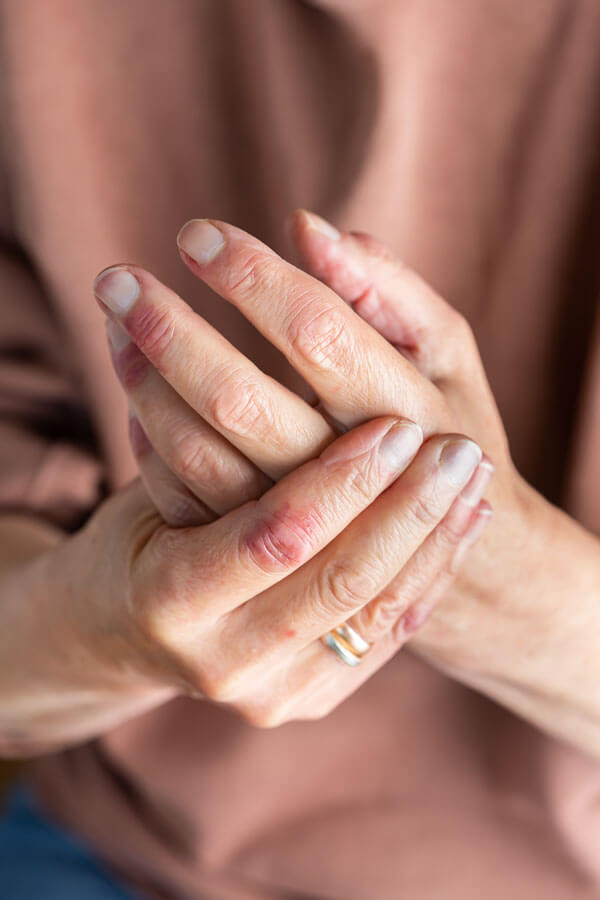4309 West 27th Pl
Suite 301
Kennewick, WA 99338
Monday - Friday:
8:00AM - 5:00PM
4309 West 27th Pl
Suite 301
Kennewick, WA 99338
Monday - Friday:
8:00AM - 5:00PM
When it comes to eczema care, my primary goal as a dermatologist is to alleviate the inflammation and irritation that can cause discomfort to patients. To achieve this, I recommend a combination of treatments, including the use of topical ointments and moisturizers.
Topical ointments play a crucial role in managing eczema symptoms. These ointments often contain corticosteroids, which help to reduce inflammation and relieve itching. I carefully assess the severity of the eczema and prescribe an appropriate strength of corticosteroid ointment to match the individual needs of each patient. These ointments are typically applied directly to the affected areas of the skin, providing targeted relief and promoting healing.
In addition to topical ointments, moisturizers are an essential component of eczema care. Moisturizers help to hydrate and nourish the skin, strengthening the skin barrier and reducing dryness and itchiness. I recommend using fragrance-free and hypoallergenic moisturizers that are specifically formulated for sensitive skin. Applying moisturizer regularly, especially after bathing or showering, can help lock in moisture and prevent flare-ups. By incorporating both topical ointments and moisturizers into a comprehensive eczema care routine, I strive to provide my patients with effective relief and improve the overall health and comfort of their skin.

Our main objective is to alleviate the symptoms associated with this chronic skin condition. To achieve this, I employ a range of treatments including topical creams, light therapy, and systemic medications.
Topical creams play a significant role in managing the symptoms of psoriasis. These creams often contain corticosteroids, vitamin D analogues, or retinoids, which work to reduce inflammation, itching, and scaling. Depending on the severity and location of the psoriasis patches, I prescribe specific topical creams to suit each patient’s unique needs. Regular application of these creams to the affected areas helps to calm the skin, improve its appearance, and provide relief from discomfort.
In certain cases, light therapy, also known as phototherapy, can be a beneficial treatment option. Light therapy involves exposing the skin to specific wavelengths of ultraviolet (UV) light under medical supervision. This controlled exposure can help slow down the excessive skin cell production that occurs in psoriasis and reduce inflammation. However, it’s important to note that light therapy should only be administered under the guidance of a dermatologist, as it requires careful monitoring and appropriate dosing to avoid any adverse effects.
For more severe cases or when topical treatments and light therapy are insufficient, systemic medications may be necessary. These medications can include oral or injectable drugs that work throughout the body to target the underlying immune system dysfunction responsible for psoriasis. Systemic medications are typically reserved for moderate to severe psoriasis or when the condition significantly impacts a patient’s quality of life. I carefully evaluate each patient’s specific needs, medical history, and treatment goals to determine the most suitable systemic medication.
By utilizing a combination of topical creams, light therapy, and systemic medications when needed, I aim to provide comprehensive psoriasis care that effectively reduces symptoms, improves skin health, and enhances the overall well-being of my patients.
Our primary focus is to accurately identify the underlying causes of the rash and provide appropriate treatment. I employ a comprehensive approach that involves evaluating and managing various factors such as allergies, infections, and other potential triggers.
When a patient presents with a skin rash, my first step is to conduct a thorough evaluation to determine the root cause. This may involve reviewing the patient’s medical history, performing a physical examination, and potentially ordering diagnostic tests such as allergy testing or skin cultures. By carefully assessing these factors, I can establish an accurate diagnosis and develop a targeted treatment plan.
Treatment for skin rashes can vary depending on the underlying cause. For rashes caused by allergies, I may recommend avoidance of specific triggers and prescribe antihistamines or topical corticosteroids to alleviate symptoms. In cases where infections are involved, appropriate antimicrobial treatments such as topical or oral antibiotics or antifungal medications may be prescribed.
In addition to specific treatments for the underlying cause, I also prioritize providing relief from discomfort and managing symptoms. This can include recommending over-the-counter moisturizers or topical creams to soothe itching, redness, or dryness associated with the rash.
Overall, my goal is to offer comprehensive care for skin rashes by accurately diagnosing the underlying cause and implementing appropriate treatment strategies. By addressing allergies, infections, and other triggers, I strive to effectively manage the rash, alleviate symptoms, and enhance the overall well-being of my patients.

4309 West 27th Pl
Suite 301
Kennewick, WA 99338
Monday - Friday:
8:00AM - 5:00PM
Fax Number:
509-436-7271